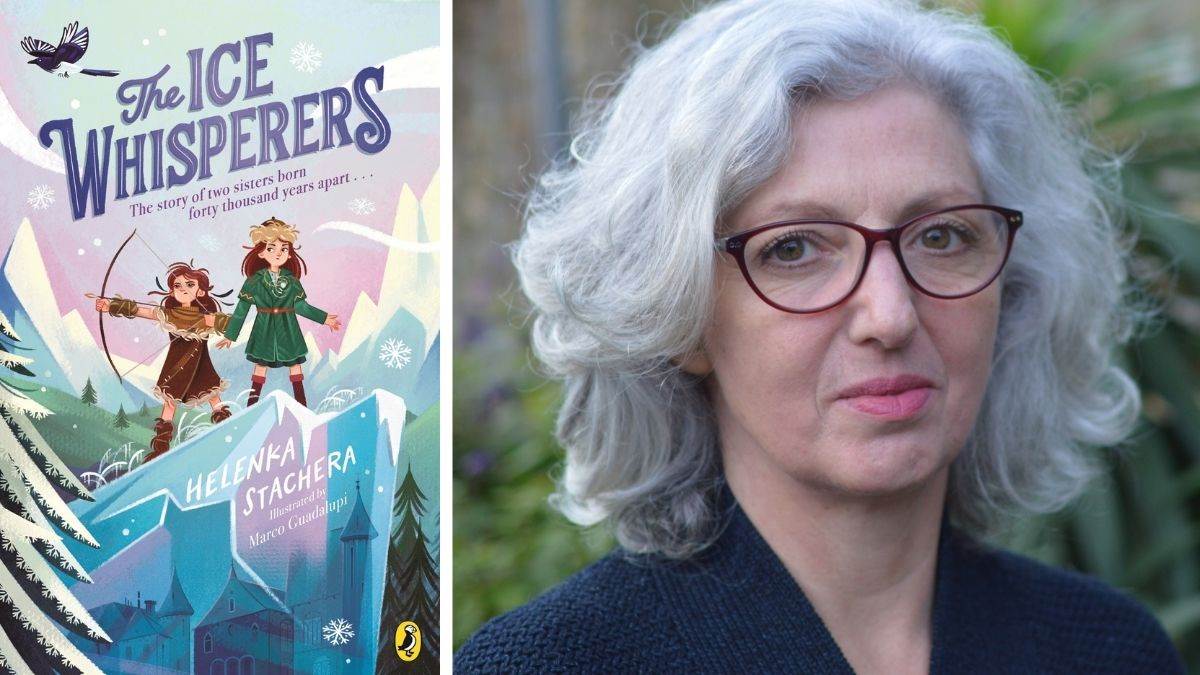"Every adopted child is full of questions": How reading with her family helped Helenka Stachera find a place to belong
Published on: 21 Rhagfyr 2021
Author Helenka Stachera's breathtaking new book, The Ice Whisperers, is all about sisterhood and belonging - and was inspired by Helenka's own experience of growing up in an adopted family. Here's how her stories help her hold on to her Polish identity.

Who am I and where do I come from?
My first book, The Ice Whisperers, begins in Poland in 1910. Thirteen-year-old Bela is full of questions about who she is and where she belongs; why did her mother send her away? And what really happened to her father, who disappeared on an expedition and is presumed dead?
When Bela’s mother dies, she is summoned to Siberia by her uncle. There, she discovers the way to the spirit world of her ancestors, an ancient ice-age people. She meets Ren-ya, a sister who was born 40,000 years ago. Ren-ya is also struggling with her identity; she is stuck in time, forever 13 years old, and cannot grow up to become the hunter and warrior she is meant to be.
Answering questions with stories
I too have many questions about my identity. When I was ten days old, I was handed over to a couple; a British woman and a Polish man. They were not my biological parents, but they took me home and brought me up as if I was their own daughter. Six months later, they adopted me and legally became my mum and dad. A new birth certificate was issued. I was no longer Jill Scarlet - my birth names - I became Helenka Stachera.
I imagine every adopted child is full of questions - I certainly was - and Mum did her best to answer them, but she had been given very little information herself. She knew my birth mother was British, that she had just read Gone With The Wind - hence the name Scarlet. She knew my father was Italian… and that was about it.
With so little to go on, I made up my own stories about who I really am; I imagined I was a princess, or from the circus, or - a favourite - perhaps I came from a family of Italian ice-cream makers.
A Polish childhood
Dad brought me up to think of myself as Polish. At home, we ate Polish food and spoke Polish, as well as English. Every year, my Polish grandmother, Babcia, would send me Polish costumes covered in colourful embroidered flowers and sequins (I would have loved to wear these outfits, only they were always a couple of sizes too small). But when I was ten years old, Dad died suddenly and everything that was Polish in my life began to slip away. I forgot how to speak and read the language, and when Babcia died a few years later, I lost touch with the Polish side of my family.
Now, years later, the stories I write are a way back to my lost Polish identity.
The power of books and stories
It will come as no surprise to anyone that, as a child I loved reading and dreamed of becoming an author. Every night, either Mum or Dad would read me a story - it was the best part of the day.
I don’t remember reading any novels with characters who were adopted. But I loved fairy tales, myths and legends, and in those stories I did find children who were like me.
They were lost, stolen, abandoned, and they were adopted, sometimes by kindly peasants, or kings and queens, or wild animals. There were characters who had to hide who they really were, under rags and dirt, only to reveal themselves triumphantly, dressed in silver and gold. Above all, they lived by their courage and their wits. What happened to them was their destiny, and reading these stories made me feel I had found my place with my family, that it was where I belonged.
All those unanswered questions about where I came from are still part of me. I don’t mind. I love wondering and daydreaming and imagining - it’s where my stories come from and, like Bela and Ren-ya do in the end, I’ve become what I was meant to be.




